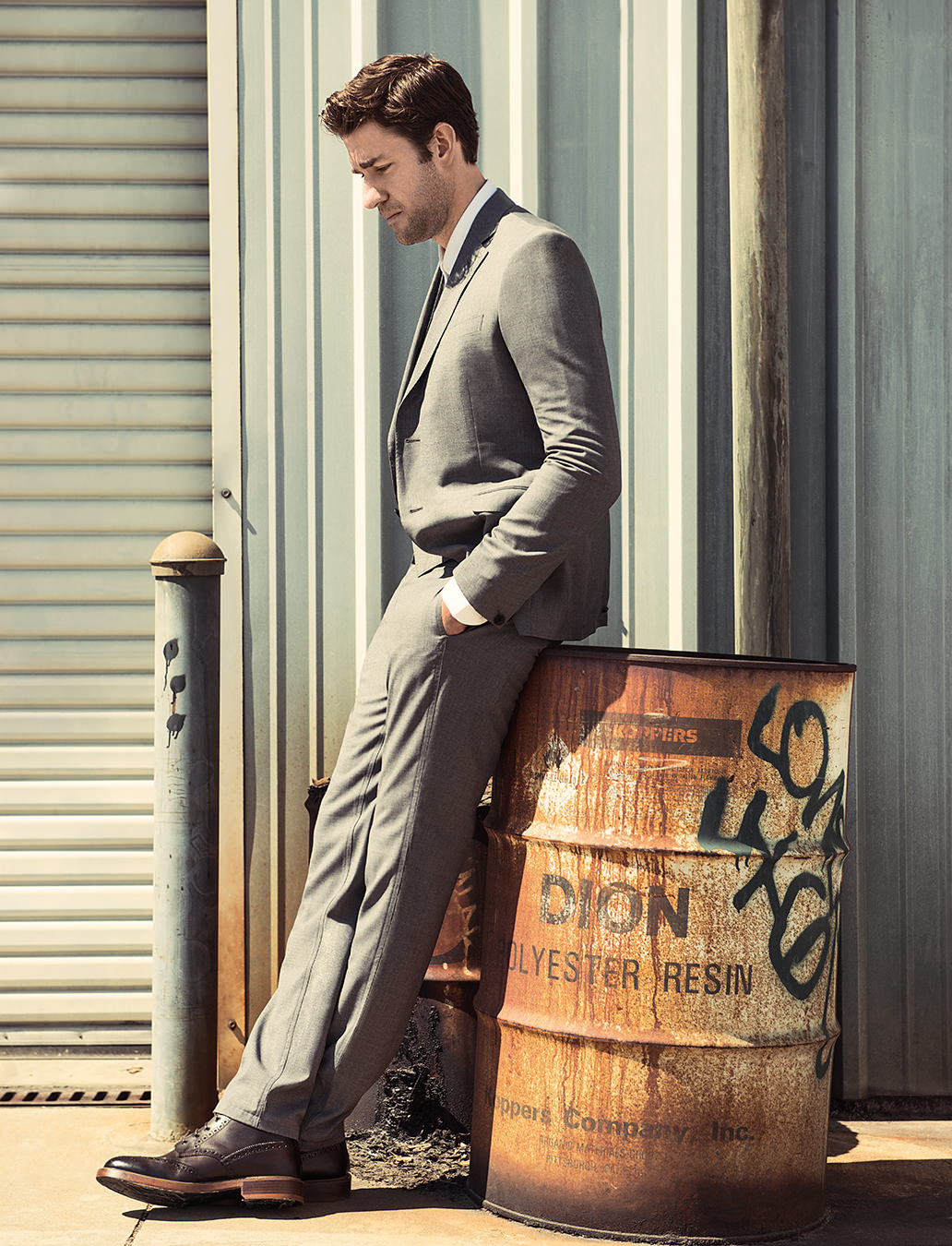-
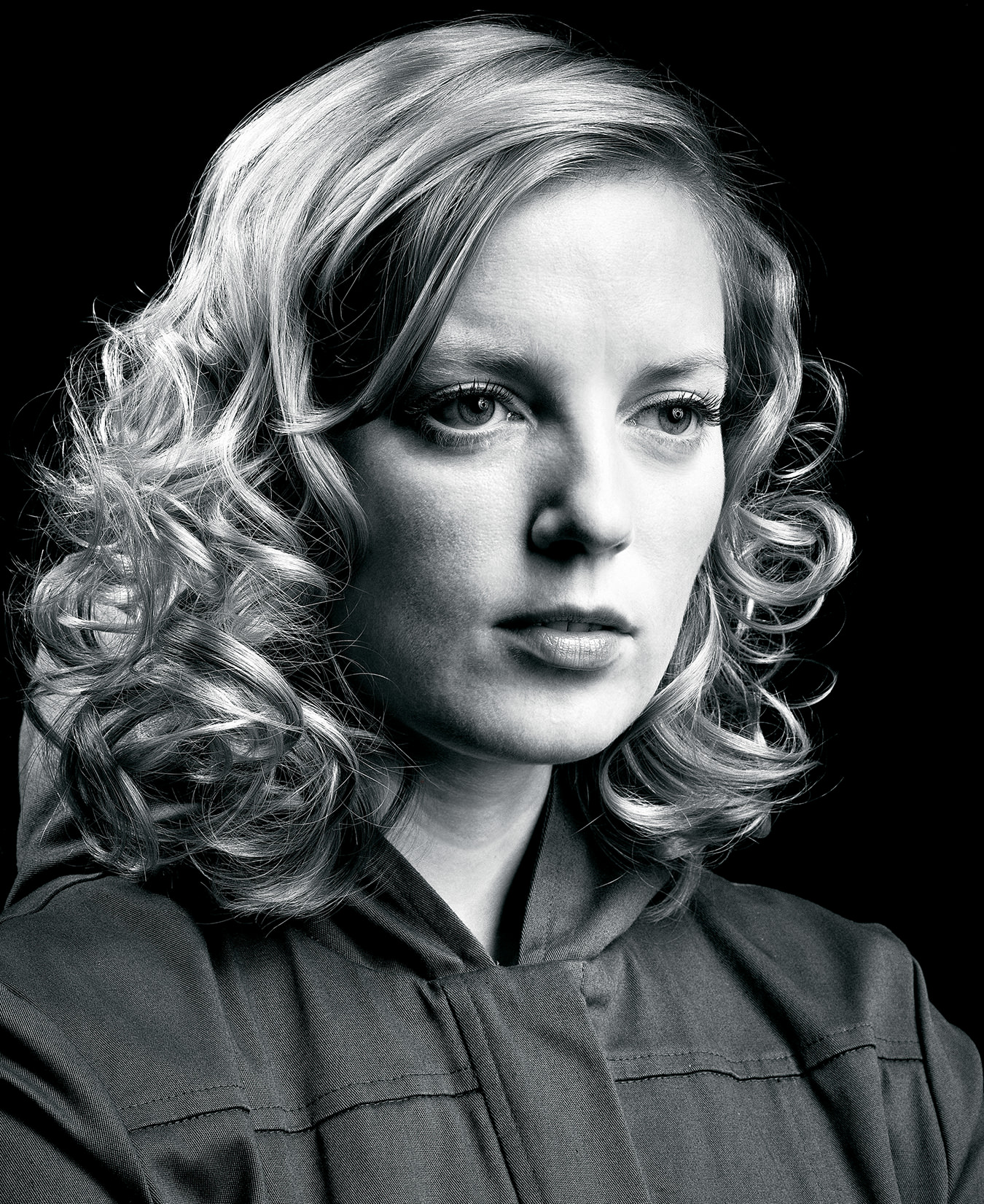
Sarah wears her own Lily & Jae jacket.
-
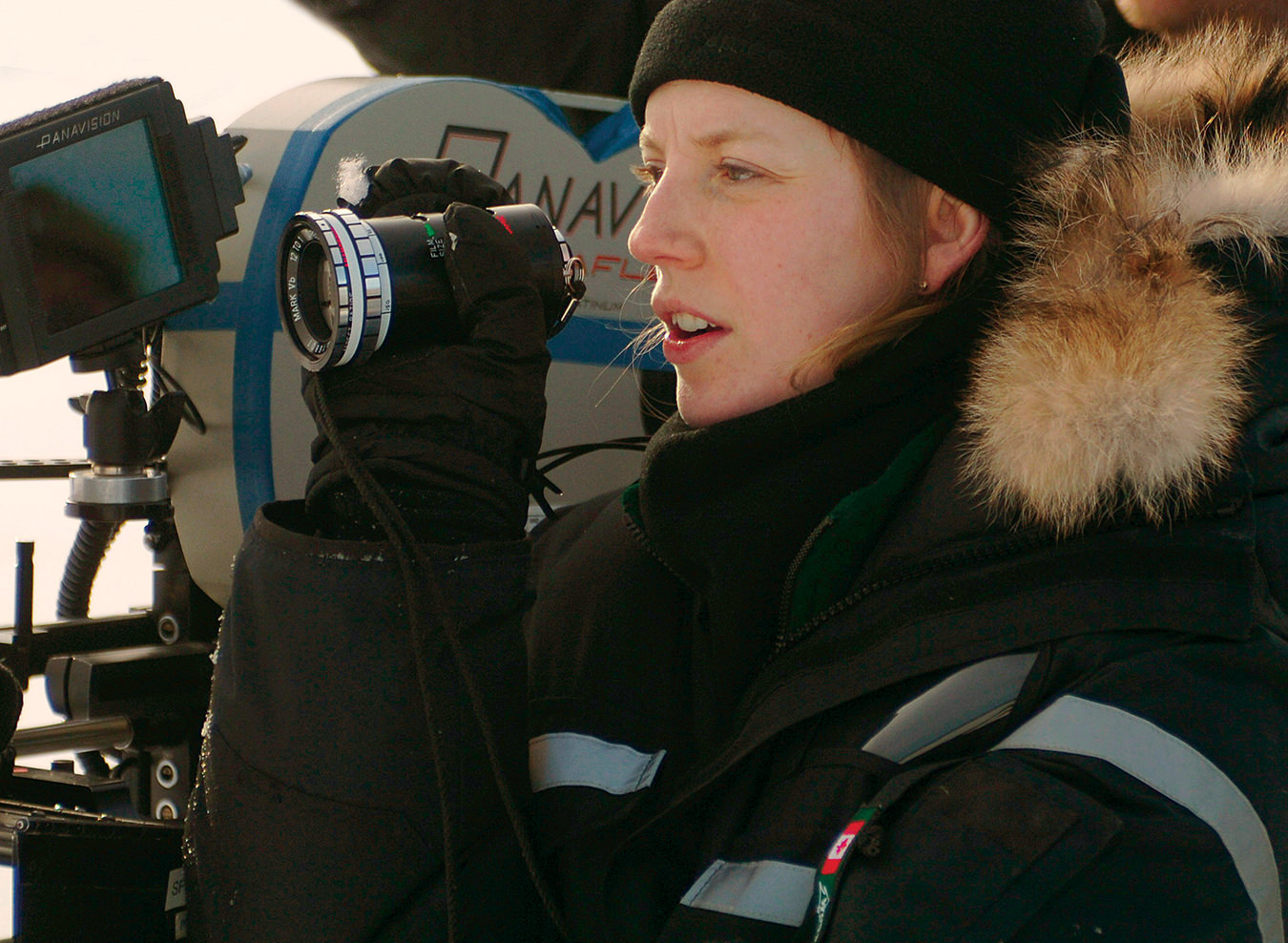
Filming on location for Polley’s directorial debut, Away From Her. Photo courtesy of Capri Releasing Inc.
-
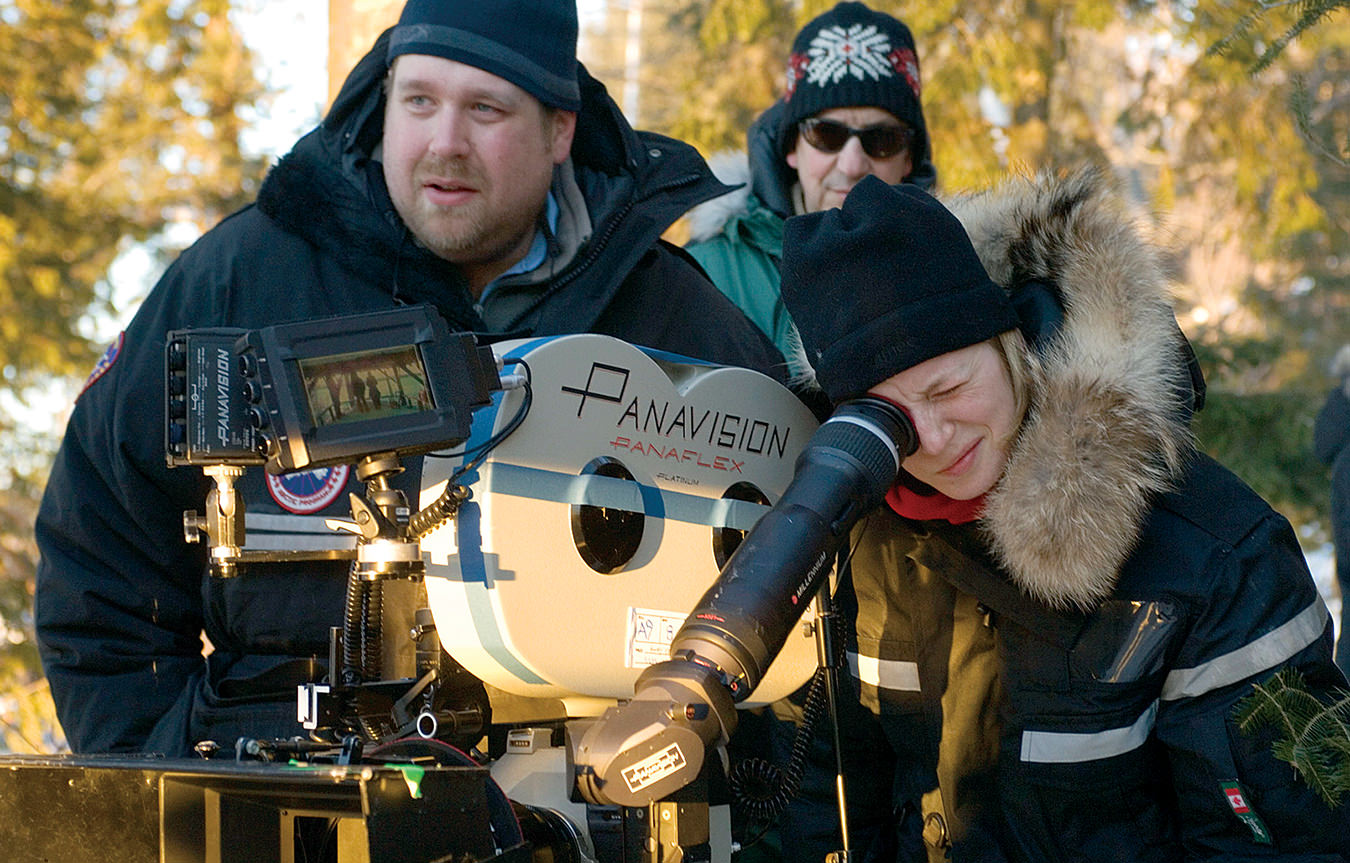
Filming on location for Polley’s directorial debut, Away From Her. Photo courtesy of Capri Releasing Inc.
-
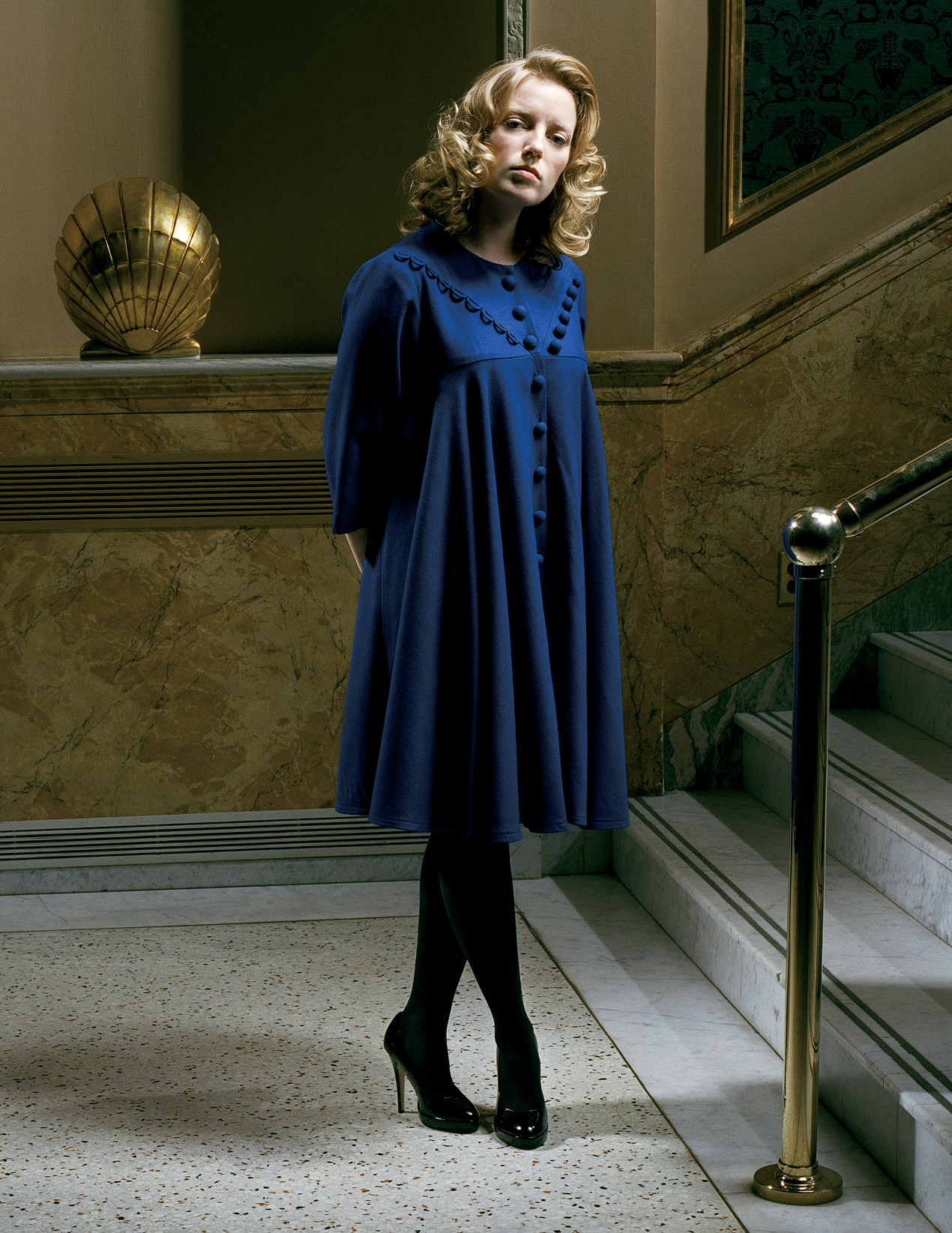
Sarah wears a Beckerman swing coat, Wolford tights, Browns shoes.
Sarah Polley
No getting away from her.

There are many ways to change the world. March in a protest. Love someone. Make a movie. Watch one. Sarah Polley has done these things, though like most people she probably wouldn’t quantify them as life-changing. But change happens in small, strange ways. Sarah Polley is 28. This spring, her feature directorial debut, Away From Her, opens in 27 countries, following its positive reception at the Sundance Film Festival and its debut at last year’s Toronto International Film Festival.
You’ve heard of Sarah Polley. This former child star first appeared on Canadian airwaves as Sara Stanley on the CBC Television series Road to Avonlea, and went on to act in dozens of films. These include, at age eight, Terry Gilliam’s The Adventures of Baron Munchausen, and as an adult, such movies as My Life Without Me; Go; Beowolf & Grendel; Dawn of the Dead; Guinevere; and Canadian filmmaking icon Atom Egoyan’s The Sweet Hereafter. She’s also directed five acclaimed shorts, including 1999’s Don’t Think Twice about a man torn between his family and his lover. She has also studied directing at Norman Jewison’s Canadian Film Centre. Not bad for someone who got her start at age four playing a street kid in the Disney film One Magic Christmas.
Yet in an industry that’s all about hype, straight-shooter Polley is as notorious for her un-Hollywood-like personality as she is for her work. Since day one, her choices have been interpreted by press and public alike as unconventional, even rebellious. But the truth is soft and simple: Polley wants to be herself, have her career reflect that self, and, like most of us, feel in control. “I’ve always had really good instincts about what I don’t want,” says Polley, sitting in a booth in a busy Toronto bistro. Styled photo shoots, for instance, tend to fall firmly into the “don’t want” category. Much was made of her outrage following her 1999 Vanity Fair cover (she wore her own vintage jacket and the publication erroneously said it was a Tommy Hilfiger). But Polley, the rigidity of her twenties tempered somewhat by the onset of her reality-check, priority-changing thirties, has publicly said since then that such trivialities no longer freak her out. In fact, for some of the Away From Her interviews, Polley has opted to indulge a few members of the powder-puff brigade. “I’ve always been incredibly strict about that,” she says of avoiding styled photo shoots. Her hesitation, she explains, “has been to do with the assumption that, as an actor, part of your job is to be a model. And I’m not going to do that whole act. But being photographed as a director doesn’t have the same baggage for me.”
In person, despite her small stature, clean face and casual outfit (girl-on-the-street hoodie, dark jeans), this quiet, intense woman commands attention. The oversized restaurant booth makes Polley look even tinier than her 5′2″ frame. She looks like one of your smarter, funnier, quirkier friends, someone who might introduce you to the new Regina Spektor record, her favourite these days. “Music is incredibly integral to the process of writing for me,” says Polley, who’s busying herself writing short fiction. She’s been listening to Feist, Sinead O’Connor, Joni Mitchell, Bob Dylan and Neil Young. “Obviously,” she adds, since Young’s “Harvest Moon” and “Helpless” are both featured in Away From Her.
Polley displays a calculated willingness to be vulnerable, suggesting she’s probably been screwed over but still aspires to truth in both work and life but only once she’s sized up the situation. Since the age of 14, she’s been relatively independent, both financially and emotionally. Her money came from acting, and her strength, from life. Her mother Diane, an actor and casting director, died before Polley turned 11. (Her father, Michael, is an actor, and her older brother Mark also acted as a kid.) Later that year, Polley was diagnosed with and treated for scoliosis. At 15, she dropped out of school to focus on her career and left-wing activism, the latter resulting in media attention rivalled only by the press generated by her reported romantic relationships with older men. There was the time when, during the Gulf War, she attended a Disney awards show in Washington, D.C., and refused to remove her peace-symbol necklace. The time she got a couple of teeth knocked out at a protest in Toronto’s Queen’s Park. Polley has also worked with the Ontario Coalition Against Poverty; campaigned for Olivia Chow and the New Democratic Party; and participated in 2001’s anti-globalization protest in Quebec City. But perhaps the most popular Polley-the-rebel anecdote tells of her dropping out of Cameron Crowe’s Almost Famous after three months of rehearsals, happily passing on the role that would make Kate Hudson a star.
“I don’t want to make films for the sake of making films, I want to feel an urgency to express something, or tell a story, or tell someone else’s story.”
But stardom isn’t for everyone. That’s why Polley doesn’t live in Los Angeles, but in her hometown of Toronto (she grew up in North York). The much-repeated punchline, of course, is that Polley has no regrets about any of it. “I can’t say I’ve had a hard life,” she says. “I’ve had some positive experiences, and others, not.” When asked about coping with unfulfilling or absent family relationships, she smiles. “I’ve always been good at finding people to fill the void.”
The next mark she hit was that of wife; Polley is three years into her marriage to film editor David Wharnsby. By most standards, she’s done a lot for her age, yet in conversation, tentative tangents that reveal she’s asking herself the same unnerving questions we all beat ourselves over the head with on the bookends of 30: impermanence, life, love. Like most of her work, Away From Her reflects this quiet, questioning of truth. Polley’s adaptation of an Alice Munro short story called “The Bear Came Over the Mountain” tells of a long-married couple whose relationship is tested when one of them develops Alzheimer’s disease. The $4-million movie stars Gordon Pinsent, aged 76; Olympia Dukakis, 75; and Julie Christie, 65.
“I don’t feel I can possibly predict what love might look like after a lifetime,” says Polley of her fascination with the movie’s subject matter. “How great is it if you can sustain something, if, no matter how life changes and moves, how marriage changes and moves, you still have that unbroken thread between people.” Although she might not know, at least not yet, what love looks like at one extreme, how about the other? She says, almost comically repulsed, that the first phase of love is really an exercise in self-reflection. “When you see someone in the throes of falling in love, you’re really witness to someone falling in love with themselves. It’s appalling to be around. All the smart, interesting stuff gets washed away by consuming emotions. I can’t talk to my friends when they’re like that. It’s very annoying.”
And we’ve all been there, Polley included. When she first met her husband, “I remember I got mad at him for not being in love with me,” she admits sheepishly. “It sounds appalling to be furious with someone for not being in love with you! I mean, it’s funny … but it’s embarrassing when it’s you.” Two-and-a-half years later, her fury abated and they got together. “I think we felt the same way about each other, but I had a much looser definition of what love meant. He wasn’t willing to use the same words to describe butterflies as he did for his parents, who have been together for 45 years. That shifted my idea of what love could be; much more layered and complex and interesting than I thought. Away From Her is about getting to explore that idea.”
Executive-produced by Atom Egoyan and produced by Daniel Iron, Simone Urdl and Jennifer Weiss, Away From Her put Polley at the helm of a crew of 65 and a cast of seven. Ironically, the movie’s acclaim has propelled Polley back into the dilemma she once found herself in as an actor, faced with similar decisions about her career, integrity and motivations. “Other filmmakers’ advice is to make another movie immediately,” she explains. “Of course, the temptation is to just jump in and make my next film, to ride the wave, because it’s so desperately difficult to get money for films. I’m just not sure it’s about that. Part of me really wants to, because I love it … but I don’t want to make films for the sake of making films, I want to feel an urgency to express something, or tell a story, or tell someone else’s story.”
“There are all these immensely talented people you have no right to be working with, all there to help you realize something you thought of in your bedroom alone one night.”
Although Polley is definitely going to continue acting, she describes directing as more terrifying and exhilarating. “You just can’t be prepared for the enormity of the responsibility. It’s so overwhelming to know the night before that 60 people are relying on you to know what you’re doing and make good choices, and somehow you’re supposed to express something visceral, intimate, even difficult.” Directing actors who are on the brink of another stage of life gave Polley insight into herself. “There are all these immensely talented people you have no right to be working with, all there to help you realize something you thought of in your bedroom alone one night. I got to bear witness to their process. I was invited into and engaged in these private, intimate moments no one gets to see.”
Julie Christie, perhaps best known for films like Doctor Zhivago and, like Polley, for her activist work, was one of these people. They met in 2001 on the set of No Such Thing and worked together again in The Secret Life of Words. “She’s been a huge influence on me on multiple levels,” says Polley. “She went through what I went through times 8,000; having a complicated relationship with acting and with the public eye.” As well, Christie’s accepting manner in approaching life taught Polley, who likes to feel in control, about letting go and living in the moment. “I’ve always been the kind of person who’s always trying to ‘get settled’, but she understands that life is groundless, that you’re never going to arrive anywhere. Just when you think you do, the rug gets pulled from under you.” In order to explore accepting “the impermanence of things instead of grasping onto things,” Polley’s latest obsession, revealed with an “I-know-it’s-so-Hollywood” caveat, is reading about Buddhism.
In what she describes as “a strange convergence of life events,” Polley’s grandmother (on whom a character in Away From Her is loosely based) passed away while Polley was making the movie. “It was an amazing and complicated and strange thing to be writing this script about a retirement home and also going to visit one regularly, seeing my grandmother adjust, and by the end losing a substantial part of her memory.”
Yet for all the archetypal questions posed through art, love and everything else, answers don’t come easy. And admitting that is as comforting as a secret handshake. For Polley, believing life is a “one-shot deal” helps her live well and compassionately. “I believe life is an accident,” she smiles. “You only live once. But I have faith in people’s faith.”
Styling: Elisa Kosonen. Hair: Eduardo Mella for JudyInc. Makeup: Michelle Rosen for JudyInc. Shot on location at the Canon Theatre in Toronto.




